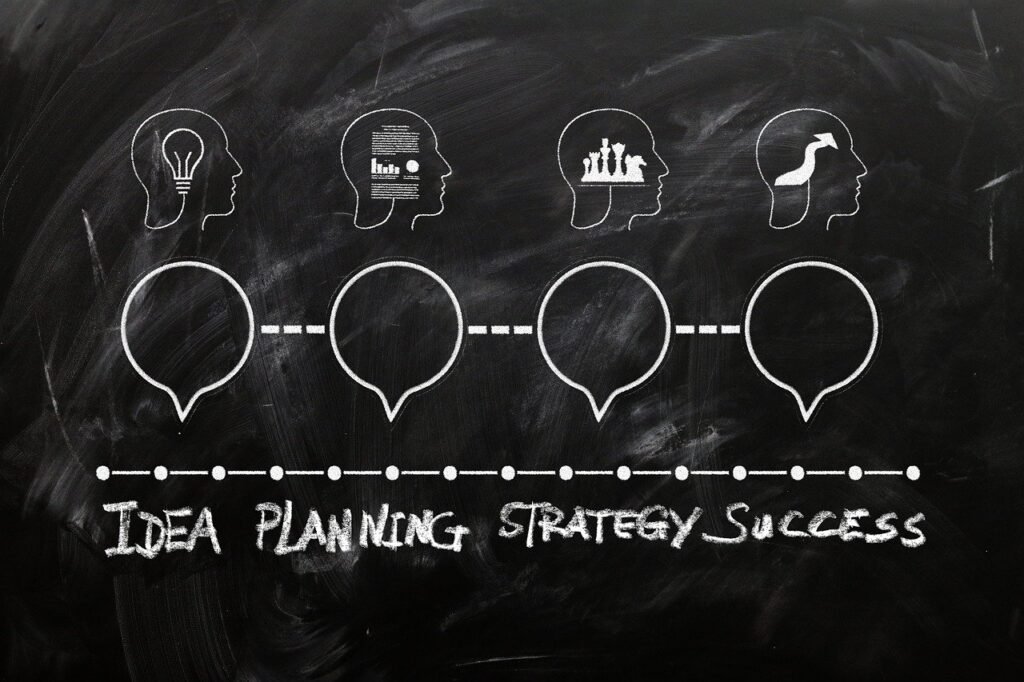In a fast-changing economic environment, having a clear business plan and strategy isn’t just useful—it’s critical. Whether you’re launching a startup, scaling an SME, or managing a well-established corporation, a strong foundation in business planning and strategic thinking separates thriving companies from those that stagnate or fail.
In this article, we’ll explore the importance of business planning, what makes a good strategy, and how entrepreneurs and managers can create practical and future-oriented plans that lead to sustainable growth.
What Is Business Planning?
Business planning is the process of defining a company’s goals and outlining the actions and resources needed to achieve them. A business plan often includes:
- Mission and vision
- Target market analysis
- Products or services offered
- Revenue model
- Marketing and sales strategy
- Operational structure
- Financial forecasts
- Funding needs
While many think of business plans as something you prepare to secure funding, they are far more than that. A good business plan is a strategic guide—your roadmap to success.

What Is a Business Strategy?
A business strategy outlines how a company intends to compete in its market, achieve differentiation, and deliver long-term value. It answers core questions like:
- What do we do better than anyone else?
- Where do we want to be in five years?
- What should we invest in?
- What market segment are we targeting?
Whereas a business plan lays out the framework and structure, the strategy brings it to life through competitive positioning, resource allocation, and long-term goals.
Why Business Planning Is Essential
1. Clarity and Direction
Without a business plan, teams often operate reactively. A written plan provides clear direction and helps ensure every department works toward the same objectives. It forces business owners to think through:
- What are our goals?
- What resources do we need?
- What could go wrong?
2. Performance Measurement
A well-defined plan includes measurable KPIs (Key Performance Indicators) and milestones. These metrics help evaluate success and keep progress transparent.
3. Investor and Lender Confidence
No investor or bank will offer capital without a sound business plan. Financial forecasts, risk assessments, and market strategies all serve to instill trust in potential stakeholders.
4. Risk Management
By identifying potential obstacles early, business planning helps organizations avoid costly mistakes. It encourages contingency planning and adaptability in the face of economic or operational disruption.
5. Internal Alignment
A strategic plan ensures that your marketing team, sales department, product development, and leadership are all aligned and moving in the same direction.

Elements of a Good Business Strategy
A strong strategy goes beyond vision—it answers the how. The key components include:
1. Market Positioning
Identify your target market and understand your competitors. Are you a low-cost leader or a premium brand? Niche or mass market?
2. Value Proposition
What makes your product or service unique? How do you solve customer pain points more effectively than the competition?
3. Growth Plan
Will you grow through new products, geographic expansion, acquisitions, or partnerships?
4. Resource Allocation
How will you allocate people, time, and money? Strategy is as much about what not to do as it is about what to prioritize.
5. Scalability
Your strategy should be future-proof—capable of adapting to market growth, technology shifts, and changing customer expectations.

The Strategic Planning Process
A structured planning process typically includes:
- SWOT Analysis – Understanding your internal Strengths and Weaknesses and external Opportunities and Threats.
- SMART Goals – Setting Specific, Measurable, Achievable, Relevant, and Time-bound objectives.
- Gap Analysis – Identifying what separates your current position from where you want to be.
- Action Plans – Laying out the concrete steps, responsible teams, and deadlines.
- Monitoring & Revision – Regular reviews (quarterly or annually) to adjust the strategy as needed.
Strategy vs. Tactics
It’s important not to confuse strategy with tactics. Strategy is the overall approach (e.g., become the leading e-commerce platform for eco-products in Eastern Europe). Tactics are the actions (e.g., launch SEO campaigns, expand to Hungary, partner with local influencers).
Both are essential, but strategy comes first.
Common Mistakes in Business Planning
- Over-optimism in forecasting
- Lack of competitive analysis
- Failing to update the plan
- Too generic or vague strategies
- Ignoring feedback and market data
A business plan is a living document—not a one-time presentation.
Strategic Tools You Can Use
- Business Model Canvas – Visual framework to map out key elements of your business model.
- Porter’s Five Forces – Analyze industry competition.
- Balanced Scorecard – Track financial and operational KPIs across departments.
- PESTEL Analysis – Understand political, economic, social, technological, environmental, and legal factors.
These tools help turn strategic thinking into structured action.

Business Planning in the EU Context
Businesses operating in the European Union must consider:
- Cross-border market strategies (EU single market)
- GDPR compliance in operational planning
- Funding from EU grants or programs (Horizon Europe, EIC, etc.)
- Cultural diversity in marketing and communication strategies
Planning and strategy are particularly important when operating across multiple countries and legal frameworks.
Final Thoughts
Whether you’re starting a one-person consultancy or scaling a tech startup, business planning and strategic thinking are non-negotiables. A well-crafted plan improves focus, secures funding, inspires employees, and most importantly—delivers results.
Don’t treat planning as a formality. Treat it as a tool for clarity, control, and growth.
For more insights and tools to grow your business in the digital age, visit Rakuzan.eu.
Need hosting for your business site, strategic platform, or analytics dashboard? Check out Hostinger for fast, reliable solutions.
Disclaimer: This article is for informational purposes only and does not constitute financial, tax, or investment advice. Readers should consult with a licensed professional before making any financial or business decisions.





